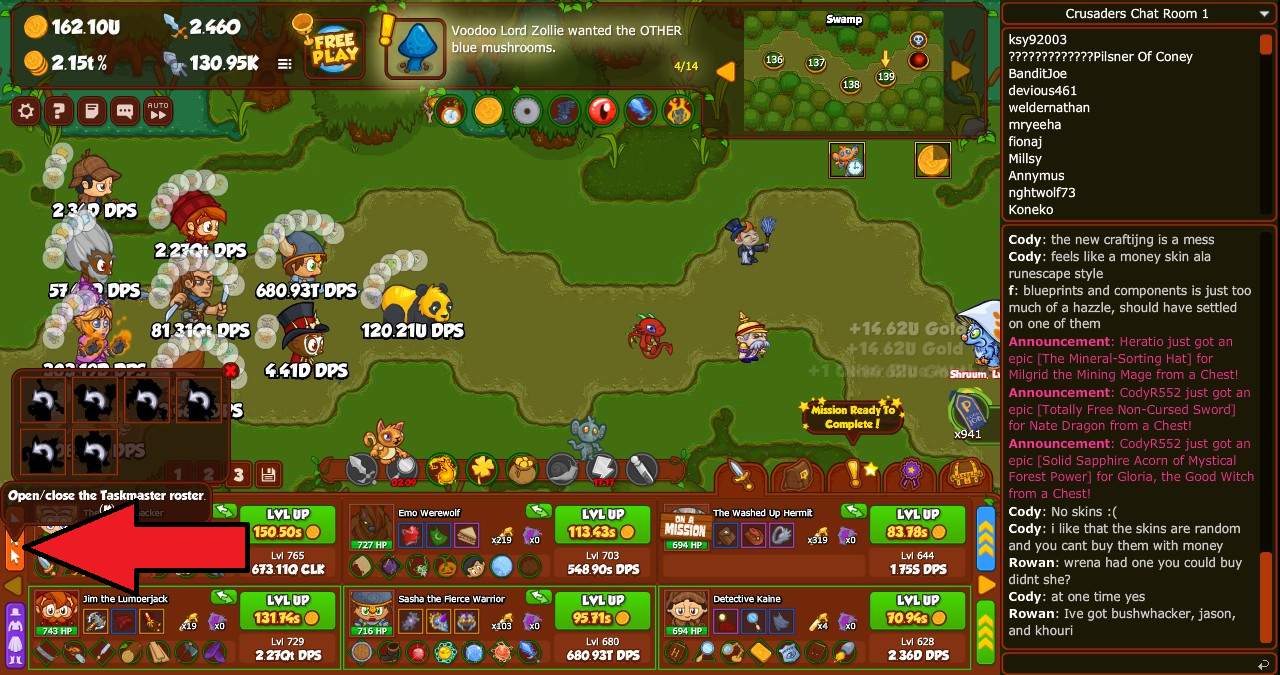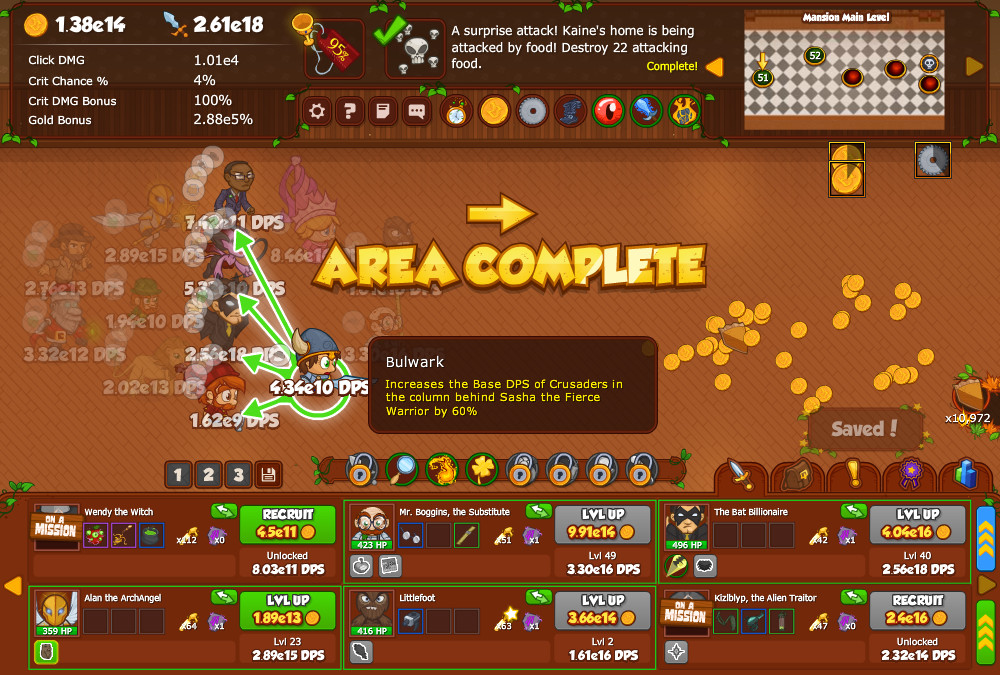

Skinner, who created what would eventually become known as the “operant conditioning chamber,” which he used to study the effects of rewarding specific behavior in rats with tangible rewards. If you’re not familiar with the concept, the “Skinner Box” is named after psychologist and behaviorist B.F. Which makes the genre the rawest-ever version of the video game Skinner Box. And he said he hasn’t gotten too bogged down in thinking about what makes that “tick,” but rather in focusing in on what players who enjoy this style of game wind up responding to most positively. “These games have evolved out of players creating and enjoying them,” he said. He said the “idle games” phenomenon is one that’s been built out of player interest rather than corporate speculation – in the same way that the MOBA genre has been a grassroots rather than top-down phenomenon. It’s a language that gamers all have come to know and be conversant in, and one that can be inscrutable and arbitrary to newcomers.īut when it came to the phenomenon of clicker games, Jordan wasn’t snobby. He did have some ideas: that games, 40 years in, have certain languages and bywords that have become canon for long-time players: things like the concept of a double-jump in platform games, or the idea that you can pick up health by running over a box on the floor. And he told me that the “why” wasn’t that important to him. When I went into my talk with Jordan, what I wanted to figure out is why that happened – why I wound up engaging with these incredibly simple game experiences for as long as I did. And despite my many years of gaming, I begrudgingly had a hard time pulling myself away from Crusaders – the same way I’d been hooked by games like the similarly-structured AdVenture Capitalist earlier last year. And even if they hadn’t worked for me, it’s clear from the response his company’s games have had that plenty of people do find this kind of game fun. As much time as I’ve spent engaging with complex player experiences, like real-time strategy, role-playing, and technical fighting games, I couldn’t tell him he was wrong to say that this “clicker” experience wasn’t fun. He went into further detail, but on its face I couldn’t argue with his premise. “It’s because they’re fun,” he offered, simply. They’re a company that’s spent the last seven years making free-to-play games, the latest of which is Crusaders of Lost Idols, a clicker game that incorporates RPG elements into the established mode. Puzzled as I was about the appeal of this formula – and I’d at this point spent a couple hours with a couple iterations on it – I wound up speaking with Eric Jordan, CEO of Codename Entertainment.

#Crusaders of the lost idols events upgrade
Each subsequent upgrade costs more, and provides exponentially more benefit once purchased. Then you periodically amass enough currency to buy a modifier to your click, which means you bring in more money per click. But there’s no denying its popularity, and, after having played a few hours of the top few titles in the “idle games” genre, I can’t deny that it has a very weird and visceral appeal.įor those who haven’t tried this genre out, a play session works generally like this: You click in order to make a transaction happen, which adds to your pile of earned currency. It doesn’t reward skill, it offers no real player agency, and it feels… well, cheap and crass. To anyone who has spent the last five, ten, or twenty years of their lives gaming, this concept is almost repulsive on its face. And you sit there and keep clicking and watching that number increase. The concept of “clicker” games – or “idle” games, or now, “incremental” games – couldn’t be simpler: you click on the screen and get some kind of reward, usually an increasing score. Since Cookie Clicker launched in 2013, the genre has found meteoric success with gamers, despite stripping the concept of “game” down to the level of Skinner box essentials: input, stimulus, and response.


 0 kommentar(er)
0 kommentar(er)
